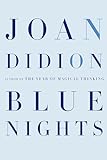Schizophrenia is a complex disorder that few of us understand. Too often we reduce it to misconceptions and stereotypes—equating it, for instance, with split personality disorder; relating its primary symptom of psychosis, a mental break with reality, to “psychos” and violent psychopaths; assuming that anyone with the disorder leads a low-functioning life spent ranting on the streets.
In The Collected Schizophrenias: Essays, Esmé Weijun Wang clarifies these points and many others. She refers to schizophrenia as the schizophrenias, a term coined by the late-19th-century Swiss psychiatrist Eugen Bleuler. Schizophrenias, a label Wang takes as her own, looks at schizophrenia not as a single illness but as a spectrum of illnesses all of which exhibit psychosis.
Most of the essays tackle a mental health issue head-on. In “Yale Will Not Save You,” she discusses the Americans with Disabilities Act and the rights of students with mental illnesses at institutions of higher learning. In “The Choice of Children,” she looks the difficulties of (1) diagnosing and treating children with serious mental illnesses and (2) someone with psychosis wrestling with the idea of having children and the chances, if any, of passing on the disorder. In “Toward a Pathology of the Possessed,” she examines family rights as she recounts the story of Malcoum Tate, who suffered from severe paranoid schizophrenia and was shot and killed by his younger sister. In “On the Ward,” she unpacks the connotations of the word “asylum” and how it brings to mind stereotypes of psychiatric facilities made famous by One Flew Over the Cuckoo’s Nest and American Horror Story’s “Asylum” season. In the same essay, she speaks to the issue of involuntary hospitalization and the politics of inpatient treatment: who gets certain privileges, who is treated with respect, who is ignored or considered problematic.
 She references key players in the history of mental health and in the mental health community. In doing so, she, perhaps, introduces the general reader to them for the first time: Nellie Bly, a stunt journalist who in the late 19th century posed as a patient to write about the conditions in the Blackwell’s Island Asylum; Kay Redfield Jameson, whose An Unquiet Mind is considered a seminal text on bipolar disorder; E. Fuller Torrey, a psychiatrist and advocate of involuntary hospitalization; and Albert Q. Maisel, a journalist who tried to expose the shameful conditions in psychiatric facilities in the 1950s; among others.
She references key players in the history of mental health and in the mental health community. In doing so, she, perhaps, introduces the general reader to them for the first time: Nellie Bly, a stunt journalist who in the late 19th century posed as a patient to write about the conditions in the Blackwell’s Island Asylum; Kay Redfield Jameson, whose An Unquiet Mind is considered a seminal text on bipolar disorder; E. Fuller Torrey, a psychiatrist and advocate of involuntary hospitalization; and Albert Q. Maisel, a journalist who tried to expose the shameful conditions in psychiatric facilities in the 1950s; among others.
For some, Wang treads territory that will feel well worn. The stigma against mental illness: how people view cancer patients as healthy and stricken down by an illness but those with mental illnesses as somehow flawed. Person-first language: how one should refer to people with mental illnesses rather than “the mentally ill” or a person with schizophrenia rather than “a schizophrenic.” For others, especially those outside the mental-health community, it will be new.
But this collection, which won the prestigious Graywolf Nonfiction Prize, does more than educate the reader. It tells of Wang’s search for the right diagnosis and a way to live with the diagnosis she’s given: schizoaffective disorder, bipolar type. With a researcher’s sensibility, she recounts her experiences—as a student at Yale, as a lab manager in Stanford’s Mood and Anxiety Disorder Laboratory, as a fashion blogger, as a counselor at a camp for children with bipolar disorder, and twice as a patient in a psychiatric hospital.
When Wang makes herself vulnerable and relates her experiences, the essays are utterly engaging. In “Yale Will Not Save You,” she tells of her acceptance to and attendance at Yale, where she was first hospitalized and treated unfairly (to say the least) by the school. After she is discharged from the hospital, the dean and the head of psychiatry respond to her situation by telling her that she can remain enrolled at Yale as long as her mother stays with her off campus for the rest of the year.
Here, we get Wang’s gifts as a writer. Of the experience, she writes: “[My mother] made Taiwanese noodle dishes. She wrote elaborate medication charts on watercolor paper. She called my psychiatrist when I lay writhing on the floor, sobbing, caught in knotty torment.” Rarely has there been a more apt description of what people with serious mental illnesses experience than “knotty torment.”
The way Wang is treated by the school is heartbreaking. After agreeing to go on a yearlong voluntary medical leave ostensibly so she can return to finish her degree, she’s denied readmittance. Yet she wants to return, even though she was treated by the school as if she’d done something criminal—having her student ID confiscated and being told to leave campus without collecting her belongings (her father had to retrieve them).
Another example of Wang’s sharp sensibility as a writer occurs when she relates a scene in the hospital cafeteria during one of her stays in the psychiatric unit. She describes how she tries to imbue the situation with a sense of normalcy, as if she can simply make conversation and eat her breakfast as if it’s any ordinary morning: “I almost choked on the first bite before abandoning the rest. The home fries were warm and slicked my tongue with grease. I ate them all. I finished my plastic container of apple juice and looked around: the glass door and windows showed the bright blue sky we couldn’t reach….” The specificity of the warm, slick home fries juxtaposed with the blue sky impossible to reach is a signature of Wang’s writing. She gets at the contradictions of her situation by zeroing in on the details.
Perhaps the most vivid essay, “Perdition Days,” concerns a period of time during which Wang suffers from Cotard’s delusion, a condition where a person believes she’s dead. Wang makes palpable her confusion and desperate need to have what she’s feeling be true. Her experience of psychosis goes from one of curiosity, observing the living from afar and almost enjoying being in an “optimistic afterlife,” to the horror of waking in purgatory: “In this scenario, I was doomed to wander forever in a world that was not mine, in a body that was not mine; I was doomed to be surrounded by creatures and so-called people who mimicked the lovely world that I’d once known.” Though the essay includes a paragraph analyzing the TV show Hannibal, “Perdition Days” is one of the few pieces where Wang focuses on her own experience to the exclusion of any reporting or research. We get more of her, and it’s powerful.
“Perdition Days” shows how in the other essays Wang’s desire to educate the reader sometimes occurs at expense of her own story. For instance, a veritable litany of medical terminology appears on a single page of the essay “Chimayó”: MRI, EEG, myasthenia, gravis, Lamert-Eaton myasthenic syndrome, IGeneX test, LLMD, Borrelia burgdorferi bacteria, neuroborreliosis, schizoaffective disorder, calcium channel Ab P/Q type. The other essays are also dense with medical and pop culture references and the question is to what purpose? Wang often reverts to analysis and a clinical view of her situation, which is to be expected given that she was a researcher. But doing so often feels like a defense, a way for Wang not to delve too deeply into the realities of her experience of mental illness.
There’s also the issue of privilege. Wang doesn’t recognize how privileged she is. She ends up graduating from Stanford, which makes her slightly less sympathetic in her gripes about how Yale treated her. Yes, it was terrible, but, no, her life wasn’t ruined. She goes on to attend a fully-funded MFA program. She has a spouse who supports her. She even tries to get on disability, believing she should be able to “grow” a business online instead of working at a menial job, which is what many on disability are forced to do. In all her research, she seems to have overlooked the fact that of the millions who apply for disability each year, only 30 percent are approved. Ultimately, she presents her experience as somehow typical of someone with bipolar disorder and/or schizoaffective disorder. There is no typical experience. But simply on a human level, Wang has had opportunities most Americans with or without disabilities only dream about.
 Perhaps this complaint of the collection is unfair. As Joan Didion writes in her memoir about the death of her daughter, Blue Nights (a text Wang quotes), “privilege” is a judgment, an opinion, an accusation. Didion refuses to “cop” to her family’s privilege because of the suffering her daughter endured. It’s not that this isn’t a valid argument; it’s just that it’s tone-deaf to those who struggle financially, socially, and emotionally.
Perhaps this complaint of the collection is unfair. As Joan Didion writes in her memoir about the death of her daughter, Blue Nights (a text Wang quotes), “privilege” is a judgment, an opinion, an accusation. Didion refuses to “cop” to her family’s privilege because of the suffering her daughter endured. It’s not that this isn’t a valid argument; it’s just that it’s tone-deaf to those who struggle financially, socially, and emotionally.
It could be that Wang’s aim is not to spend too much time focusing on the low-functioning times in her life and instead present a different portrait of what someone who suffers from psychosis looks like: that of a woman who is often rational and appears “normal.” She chooses what to wear in the morning, just like anyone else. Hers just happens to be a “brown silk Marc Jacobs dress with long sleeves, carefully folded up at the elbows.” She puts on makeup, just like anyone else. Hers just happens to be “Chanel’s Vitalumiére Hydra foundation in 20 Beige (discontinued), and a nubby Tom Ford lipstick in Narcotic Rouge (also discontinued, replaced by the inferior Cherry Lush).” She explains much of this materialism away by the fact that she worked at a fashion magazine and worked as a fashion blogger and supposedly got all of her clothes for free.
None of this diminishes the power of Wang’s writing or The Collected Schizophrenias. As she struggles to make sense of her illness, Wang gives us yet another of her sharp insights. She calls out Rebecca Solnit (and by proxy Virginia Woolf) and the claim that there’s a tranquility in illness that allows a person to abandon responsibilities, escape from the world, and laze around in bed all day. Wang distinguishes between sudden, transient illness (the flu) and chronic mental illness (schizoaffective disorder, bipolar type): “With chronic illness, life persists astride illness unless the illness spikes to acuity; at that point, surviving from one second to the next is the greatest ambition I can attempt.” In her life, Wang has obviously done more than survive from one second to the next. She’s written an important collection of essays of which all of us will be more knowledgeable and sympathetic for having read.
The post Finding Asylum: Esmé Weijun Wang’s ‘The Collected Schitzophrenias’ appeared first on The Millions.
Source : Finding Asylum: Esmé Weijun Wang’s ‘The Collected Schitzophrenias’













